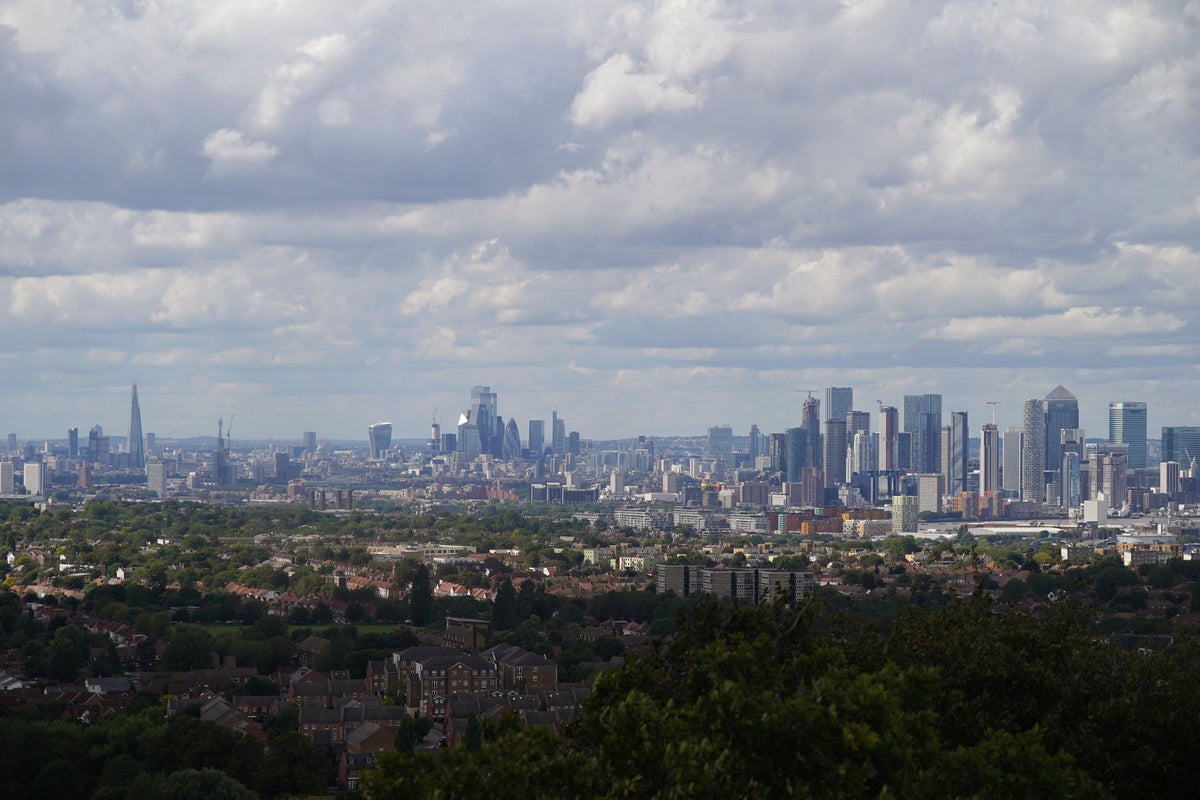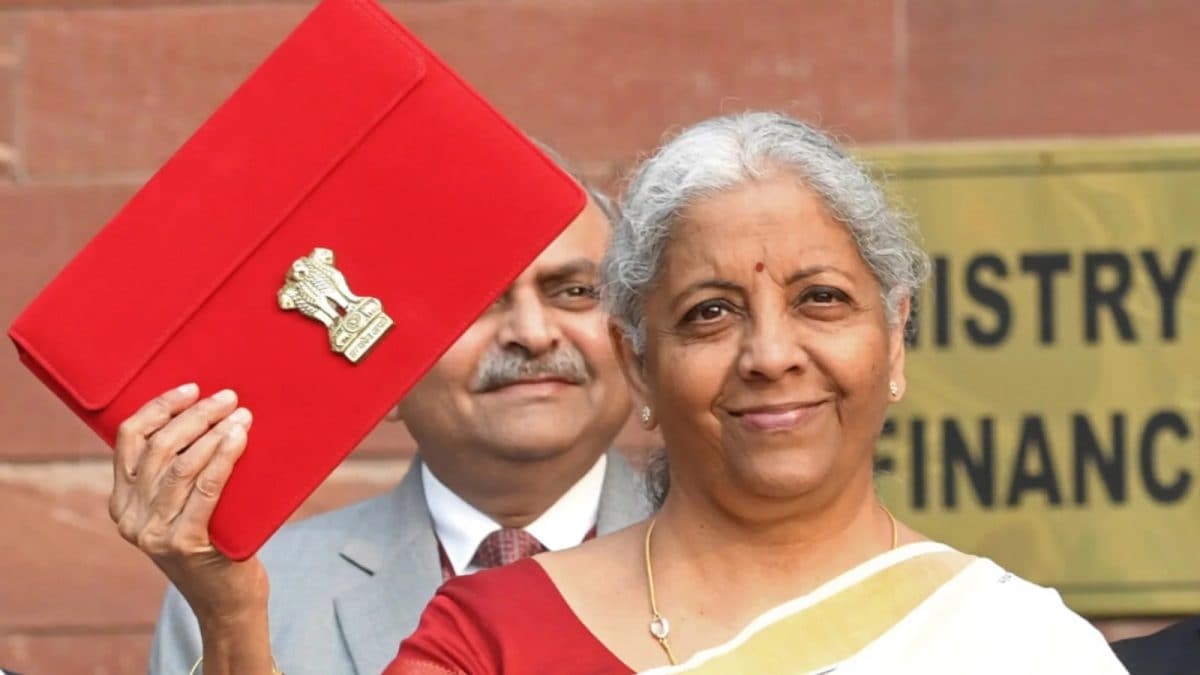Business
FTSE 100 closes lower as geopolitical issues worry investors

The FTSE 100 gave back early gains to close lower on Wednesday as weak retailers and increased geopolitical concerns limited progress.
The index closed down 17.14 points, 0.2%, at 9,225.39. The FTSE 250 ended 62.61 points lower, 0.3%, at 21,534.10 and the AIM All-Share finished down 6.29 points, 0.8%, at 762.01.
In Europe, the Cac 40 in Paris ended up 0.2%, while the Dax 40 in Frankfurt closed 0.4% lower.
Investors were unsettled by events in the Middle East following Israel’s missile strike on Qatar. Also, Nato fighter jets shot down Russian drones over Polish airspace for the first time.
Poland’s foreign minister Radoslaw Sikorski said on Wednesday that the overnight intrusion of several Russian drones into the Nato member’s airspace was “not an accidental event”.
“We are dealing with an unprecedented case of an attack not only on Poland’s territory but also on the territory of Nato and the EU,” Mr Sikorski told reporters.
In London, airlines came under pressure over fears that flights will be disrupted. British Airways owner IAG fell 4.1% while low-cost airlines easyJet and Wizz Air dropped 2.2% and 1.8% respectively.
In New York, at the time of the London equities market close, the Dow Jones Industrial Average was down 0.6%, the S&P 500 rose 0.4%, as did the Nasdaq Composite.
Across the pond, Oracle leapt 42%. After Tuesday’s US market close, the Texas-based cloud technologies-focused company astounded analysts as it reported a significant increase in bookings and gave an extremely bullish outlook for its cloud infrastructure business.
Chief Executive Safra Catz told investors that Oracle has made an “amazing start” to the financial year, signing significant cloud contracts with the “who’s who of AI”, including Meta, AMD and Nvidia.
Catz expects Oracle Cloud Infrastructure revenue to grow 77% to 18 billion dollars this financial year.
Ahead of Thursday’s consumer inflation figures, data showed US producer prices rose 2.6% year-on-year in August, easing from a 3.1% advance for July, and below 3.3% FXStreet consensus.
Month-on-month, prices fell 0.1% in August, after a 0.7% rise in July from June. It was the first monthly decline since April. The monthly figure undershot expectations of a 0.3% rise.
Excluding foods, energy and trade, producer prices rose 2.8% on-year in August, picking up speed from 2.7% in July. They rose 0.3% in August, easing from 0.6% in July from June.
The pound edged up to 1.3548 dollars late on Wednesday afternoon in London, compared to 1.3545 at the equities close on Tuesday. The euro nudged down to 1.1722 dollars, against 1.1724.
The yield on the US 10-year Treasury was quoted at 4.06%, trimmed from 4.08% on Tuesday. The yield on the US 30-year Treasury was quoted at 4.71%, narrowed from 4.73%.
On the FTSE 100, retailers were a weak feature, not helped by softer-than-hoped-for sales at fast fashion business Primark, owned by Associated British Foods.
Shares in AB Foods tumbled 13% as analysts bemoaned “vague” guidance, soft sales at Primark and a less-than-sweet performance at its Sugar business.
AB Foods said sales growth at Primark, which generates around 47% of group revenue, is expected to be around 1% in the second half of the financial year to September 13 compared to the prior year, and below Visible Alpha consensus of 3.4%.
In addition, the firm said it expects the consumer environment to remain “uncertain”.
AJ Bell analyst Russ Mould said the idea that value retailers will automatically thrive in a period where consumers are watching their pennies “no longer stacks up”.
“Cheap prices do not mean goods will fly off the shelf, just as Primark has found out,” he said.
Marks & Spencer fell 3.0%, and Next eased 1.8%. Kingfisher dropped 1.7%, as did JD Sports Fashion.
Anglo American gained a further 1.7% as its tie-up with Teck Resources continued to be well received while Haleon, up 1.1%, benefited from an upgrade by Goldman Sachs to ‘buy’.
Elsewhere, Vistry fell 4.5% as it reported a drop in profit and revenue.
The Kent-based housebuilder reported pretax profit of £40.9 million for the six months that ended June 30, down 55% from £91.2 million a year earlier. Revenue fell 5.1% to £1.64 billion from £1.72 billion.
Vistry noted lower levels of demand from its affordable housing partners, which it said reflected uncertainty ahead of the June spending review, coupled with transitional funding constraints as part of the move towards a new social & affordable housing programme.
Serica Energy slid 14% as it said further maintenance is required at the Triton Floating Production Storage & Offloading unit, resulting in a temporary reduction in production.
The North Sea-focused oil and gas producer suspended production at the FPSO back in January, following issues resulting from Storm Eowyn.
In August, Serica Energy said production had resumed with activity ramping up in line with its expectations.
In addition, Dana Petroleum, which operates the Triton FPSO, has told the company that subsea intervention work on the Bittern field has been scheduled for November.
The resultant production deferrals mean that Serica’s production guidance for 2025 has been reduced to 29,000 to 32,000 barrels of oil equivalent per day from 33,000 to 35,000 boepd previously.
A barrel of Brent traded at 67.31 dollars on Wednesday afternoon, up from 66.31 on Tuesday. Gold firmed to 3,646.88 dollars an ounce on against 3,640.80 on Tuesday.
The biggest risers on the FTSE 100 were Prudential, up 33.4p at 1,027.0p, Polar Capital Technology Trust PLC, up 9.5p at 414.0p, BAE Systems, up 39.0p at 1,832.0p, HSBC, up 17.8p at 996.8p and Fresnillo, up 38.0p at 2,174.0p.
The biggest fallers on the FTSE 100 were Associated British Foods, down 295.5p at 1,945.5p, Relx, down 146.0p at 3,337.00p, IAG, down 16.2p at 381.7p, Auto Trader, down 25.2p at 788.2p and Marks & Spencer, down 10.6p at 342.1p.
Contributed by Alliance News
Business
Harry Styles and Anthony Joshua among UK’s top tax payers

The former One Direction member-turned-solo artist appears on the Sunday Times list for the first time.
Source link
Business
From Manufacturing To Infra And AI: Capex Boost Flags Off Budget 2026 ‘Reforms Express’

Last Updated:
Budget 2026: FM Nirmala Sitharaman gives a strong push to manufacturing, infrastructure and job creation, while proposing a simpler tax and customs system.

Finance Minister Nirmala Sitharaman presents the Union Budget 2026-27.
Budget 2026 Takeaways: Finance Minister Nirmala Sitharaman on Sunday presented the Union Budget 2026-27, giving a strong push to manufacturing, infrastructure and job creation, proposing a simpler tax and customs regime, and hailing the government’s modernisation drive as a “reforms express”.
The Budget 2026 is anchored around three ‘kartavyas’ — driving growth by enhancing productivity and competitiveness, building people’s capacity, and ensuring inclusive development under the vision of Sabka Saath, Sabka Vikaas.
In her ninth consecutive Budget in Parliament, Sitharaman laid out a multi-pronged strategy to sustain growth amid global uncertainty, including expanding domestic electronics and semiconductor capabilities, de-risking infrastructure projects, skilling India’s youth for emerging technologies, and easing compliance for taxpayers and importers.
Here are the key takeaways from Budget 2026 across manufacturing, infrastructure, skills, AI, taxation and customs duty.
Manufacturing Gets A Boost
Budget 2026 put a special emphasis on the manufacturing landscape in India. The outlay for electronics components manufacturing was raised sharply to Rs 40,000 crore, while new schemes for rare earth magnets, chemical parks, container manufacturing and capital goods seek to reduce import dependency, and strengthen domestic supply chains. Textiles got an integrated, employment-oriented package covering fibres, clusters, skilling and sustainability.
Infrastructure-Led Growth
Infrastructure got a boost with a higher capex allocation and initiatives like a risk guarantee fund to de-risk projects for private developers, new dedicated freight corridors and national waterways, dedicated REITs (real estate investment trusts) for recycling of significant real estate assets of central public sector enterprises (CPSEs), and a seaplane VGF (viability gap funding) scheme.
The Centre’s capital expenditure (capex) target has been increased to Rs 12.2 lakh crore for FY27, up from Rs 11.2 lakh crore earmarked for the current financial year. Moreover, maintaining the fiscal discipline, Sitharaman said the government expects the fiscal deficit to be at 4.3 per cent of the GDP in 2026-27, lower than 4.4 per cent projected for the current financial year.
Tier-II and Tier-III cities were placed at the centre of urban growth via City Economic Regions, backed by reform-linked funding.
“We shall continue to focus on developing infrastructure in cities with over 5 lakh population (Tier II and Tier III), which have expanded to become growth centres,” Sitharaman said in her Budget Speech.
Greater Emphasis On Skilling
The Budget placed renewed emphasis on the services economy as a jobs engine. A high-powered Education-to-Employment and Enterprise Committee will realign skilling with market needs, including the impact of emerging technologies.
Content creation and creative industries get a boost through AVGC labs in schools and colleges, support for animation, gaming and comics, and new institutional capacity for design and hospitality. Tourism-linked skilling, from guides to digital heritage documentation, signals a clear intent to convert culture and content into employment and exports.
“I propose to support the Indian Institute of Creative Technologies, Mumbai in setting up AVGC Content Creator Labs in 15,000 secondary schools and 500 colleges,” FM Sitharaman said. AVGC stands for animation, visual effects, gaming and comics.
AI & Semiconductors Push
Artificial intelligence (AI) was positioned as a cross-sector force multiplier rather than a standalone theme. The Budget provided a push to artificial intelligence (AI) by promoting adoption with governance, agriculture, education and skilling, including proposals for AI-enabled advisory tools for farmers and AI integration in education curricula.
On hardware, the semiconductor strategy expanded decisively under ISM 2.0 (India Semiconductor Mission 2.0), with focus on domestic equipment manufacturing, materials, research centres and workforce development, signalling a long-term commitment to building a resilient chip ecosystem in India.
Taxation, ITR, TDS, TCS
A major structural reform comes with the Income Tax Act, 2025, effective April 1, 2026, containing simpler rules and redesigned forms.
Budget 2026 provided compliance relief for individuals, including extended timelines for revising returns to March 31 from December 31 earlier, staggered ITR due dates, and easier filing of Form 15G/15H through depositories.
Individuals with ITR-1 and ITR-2 returns will continue to file till July 31, and non-audit business cases or trusts are proposed to be allowed time till August 31, according to the Budget Speech 2026-27.
“I propose to extend time available for revising returns from 31st December to up to 31st March with the payment of a nominal fee. I also propose to stagger the timeline for filing of tax returns. Individuals with ITR 1 and ITR 2 returns will continue to file till 31st July and non-audit business cases or trusts are proposed to be allowed time till 31st August,” Sitharaman said.
TDS (Tax deducted at source) rules were clarified for manpower services, while a rule-based system for lower or nil TDS certificates is proposed. TCS rates were cut to 2% for overseas tour packages, education and medical expenses under liberalised remittance scheme (LRS). Litigation is targeted through integrated assessment and penalty orders, lower pre-deposit requirements, and wider immunity provisions.
TDS on the sale of immovable property by a non-resident will be deducted and deposited through resident buyer’s PAN (Permanent Account Number)-based challan instead of requiring TAN (Tax Deduction and Collection Account Number), Sitharaman said.
Customs Duty Tweaks
Customs duty rationalisation continued with a clear focus on domestic manufacturing, energy transition and ease of living. Exemptions have been extended or introduced for capital goods used in lithium-ion batteries, critical minerals processing, nuclear power projects and aircraft manufacturing.
Personal imports will become cheaper with a reduction in duty on goods for personal use from 20% to 10%. Seventeen cancer drugs and additional rare-disease treatments were exempted from customs duty. Process reforms aimed at trust-based, tech-driven clearances, faster cargo movement and lower compliance costs, especially for exporters and MSMEs (micro, small, medium and enterprises).
STT On F&O Hiked
The Budget increased securities transaction tax (STT) on futures trading from 0.02% to 0.05% and on options trading from 0.10% to 0.15%, a move that upset the capital markets with the BSE Sensex crashing more than 2,300 points from the day’s high and the NSE Nifty dropping to 24,571.75.
Securities Transaction Tax (STT) is a direct tax imposed on the buying and selling of securities in India.
Commenting on the Budget, Prime Minister Narendra Modi said, “The Union Budget reflects the aspirations of 140 crore Indians. It strengthens the reform journey and charts a clear roadmap for Viksit Bharat.”
February 01, 2026, 14:43 IST
Read More
Business
French tech giant Capgemini to sell US subsidiary working for ICE

The firm’s move comes amid global scrutiny of the methods used by the US immigration enforcement agency.
Source link
-

 Sports5 days ago
Sports5 days agoPSL 11: Local players’ category renewals unveiled ahead of auction
-

 Tech1 week ago
Tech1 week agoThis Mega Snowstorm Will Be a Test for the US Supply Chain
-

 Entertainment5 days ago
Entertainment5 days agoClaire Danes reveals how she reacted to pregnancy at 44
-

 Tech1 week ago
Tech1 week ago‘Uncanny Valley’: Donald Trump’s Davos Drama, AI Midterms, and ChatGPT’s Last Resort
-

 Fashion1 week ago
Fashion1 week agoSpain’s apparel imports up 7.10% in Jan-Oct as sourcing realigns
-

 Tech1 week ago
Tech1 week agoICE Asks Companies About ‘Ad Tech and Big Data’ Tools It Could Use in Investigations
-

 Sports5 days ago
Sports5 days agoCollege football’s top 100 games of the 2025 season
-

 Fashion1 week ago
Fashion1 week agoTurkiye cuts benchmark rate to 37%, flags confidence on inflation






